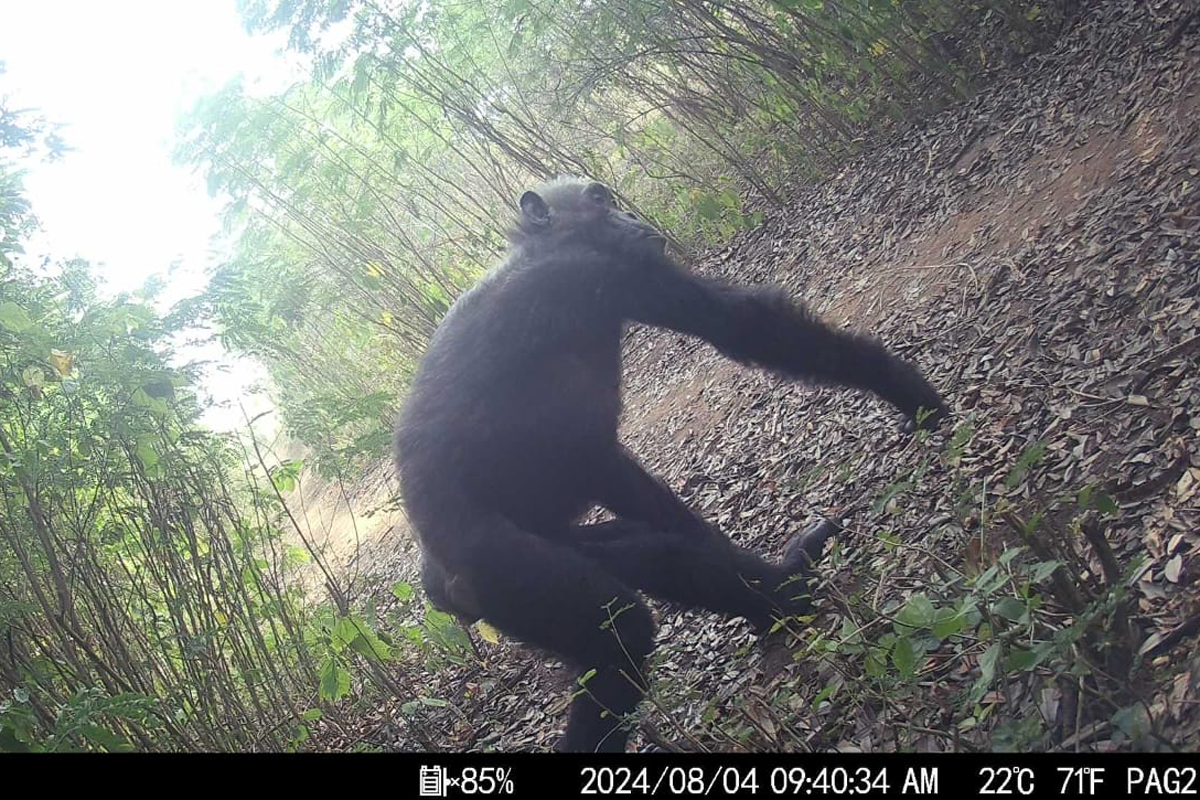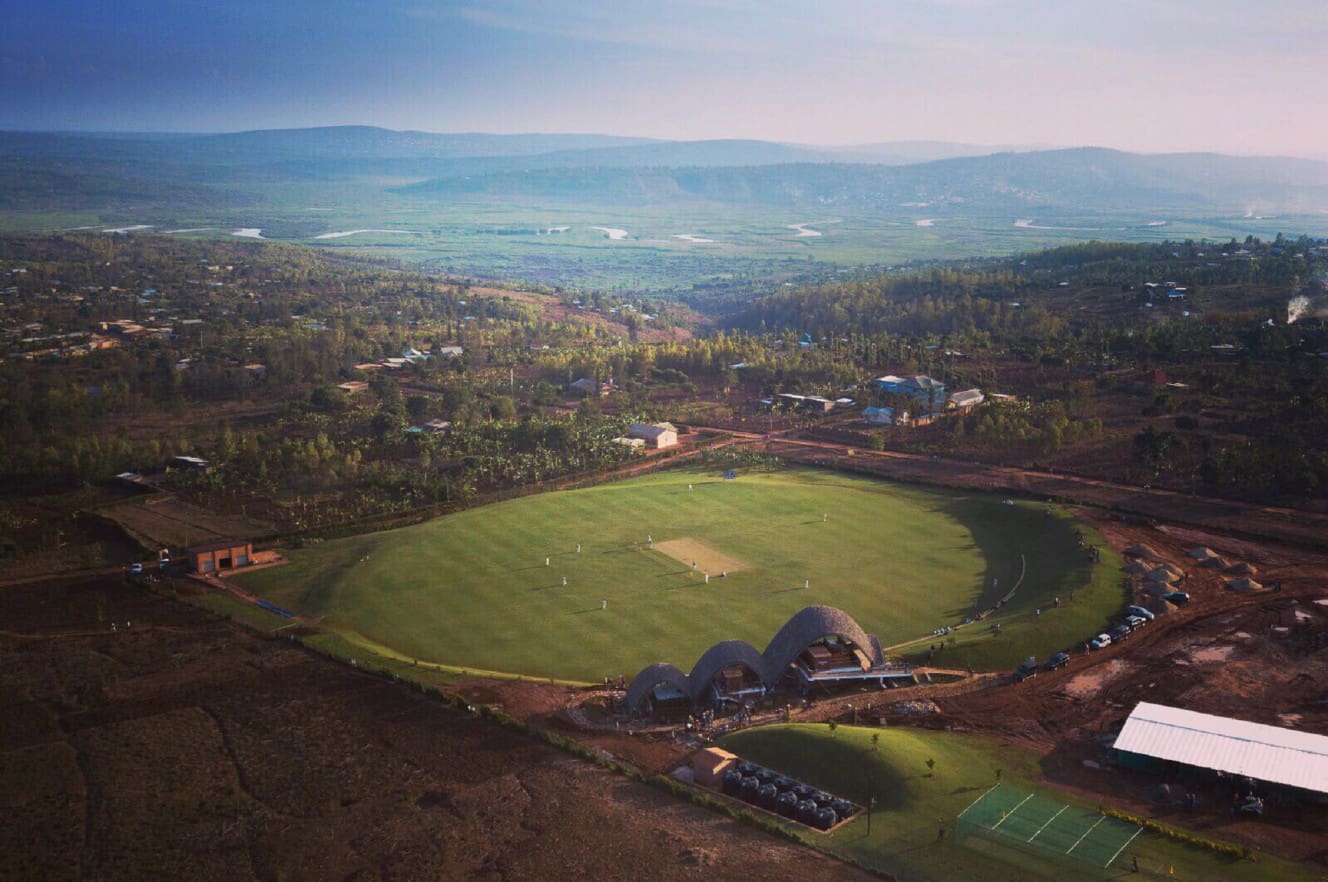
Once war-torn Rwanda is now ready to shine
28 December 2017
Once war-torn Rwanda is now ready to shine
 Rwanda's newly opened cricket stadium outside the capital, Kigali, is just one spark of change for this formerly war-torn nation. Dom Dwight[/caption]
Rwanda's newly opened cricket stadium outside the capital, Kigali, is just one spark of change for this formerly war-torn nation. Dom Dwight[/caption]
 Iky's Photographic[/caption]
Kigali is an interesting study in contrasts. Women carry baskets of fruit on their heads as they wander through busy markets, millennials furiously text on their phones and scooters buzz and beep past cluttered storefronts that line the pristine streets, where the sparkly new buildings sit as a backdrop. This is modern-day Africa at its best.
Rural parts of the country are following closely behind with new lodges, catering to a very high-end tourism market. Before this year, Volcanoes Safaris, the first company to introduce gorilla tourism into the country, was the only one that offered luxury accommodations.
Gorilla tourism via resorts of this caliber and other, less pricey outposts is one of Rwanda’s most successful income earners; tourism earnings grew 6 percent between 2015 and 2016. To support Rwanda’s high-end sustainable tourism policy, this year, the price of gorilla permits — which allow each visitor access into the park and an hour to observe the gorillas — also doubled in price (from $750 to $1,500).
There’s even more buzz just outside Kigali. The opening of a new cricket stadium a half hour’s drive away in Gahanga in late October of this year serves as a poignant emblem of how far Rwanda has come. The stadium will host year-round local and international matches and also hopes to become a community hub, with a bar, restaurant and HIV testing facility for the local community. “Cricket is really playing its part in the healing process of the country,” says national team captain Eric Dusingizimana. “It’s bringing people together.”
Before the genocide, no Rwandan played cricket. But when, after 1994, when refugees returned home from surrounding countries such as Kenya and Uganda — former British colonies — they brought a new sport that they’d learned how to play with them. It is now the fastest-growing pastime in the country, with over 15,000 players, as well as a unifying force for its citizens. Former rivals are now batting for the same side and working together to grow support for the sport.
“Now we can finally start hosting tournaments,” Dusingizimana says, as he gazes out over the new cricket pitch. The look in his eyes is one that can be seen in the eyes of so many Rwandans; it’s the unmistakable glimmer of hope.
Iky's Photographic[/caption]
Kigali is an interesting study in contrasts. Women carry baskets of fruit on their heads as they wander through busy markets, millennials furiously text on their phones and scooters buzz and beep past cluttered storefronts that line the pristine streets, where the sparkly new buildings sit as a backdrop. This is modern-day Africa at its best.
Rural parts of the country are following closely behind with new lodges, catering to a very high-end tourism market. Before this year, Volcanoes Safaris, the first company to introduce gorilla tourism into the country, was the only one that offered luxury accommodations.
Gorilla tourism via resorts of this caliber and other, less pricey outposts is one of Rwanda’s most successful income earners; tourism earnings grew 6 percent between 2015 and 2016. To support Rwanda’s high-end sustainable tourism policy, this year, the price of gorilla permits — which allow each visitor access into the park and an hour to observe the gorillas — also doubled in price (from $750 to $1,500).
There’s even more buzz just outside Kigali. The opening of a new cricket stadium a half hour’s drive away in Gahanga in late October of this year serves as a poignant emblem of how far Rwanda has come. The stadium will host year-round local and international matches and also hopes to become a community hub, with a bar, restaurant and HIV testing facility for the local community. “Cricket is really playing its part in the healing process of the country,” says national team captain Eric Dusingizimana. “It’s bringing people together.”
Before the genocide, no Rwandan played cricket. But when, after 1994, when refugees returned home from surrounding countries such as Kenya and Uganda — former British colonies — they brought a new sport that they’d learned how to play with them. It is now the fastest-growing pastime in the country, with over 15,000 players, as well as a unifying force for its citizens. Former rivals are now batting for the same side and working together to grow support for the sport.
“Now we can finally start hosting tournaments,” Dusingizimana says, as he gazes out over the new cricket pitch. The look in his eyes is one that can be seen in the eyes of so many Rwandans; it’s the unmistakable glimmer of hope.